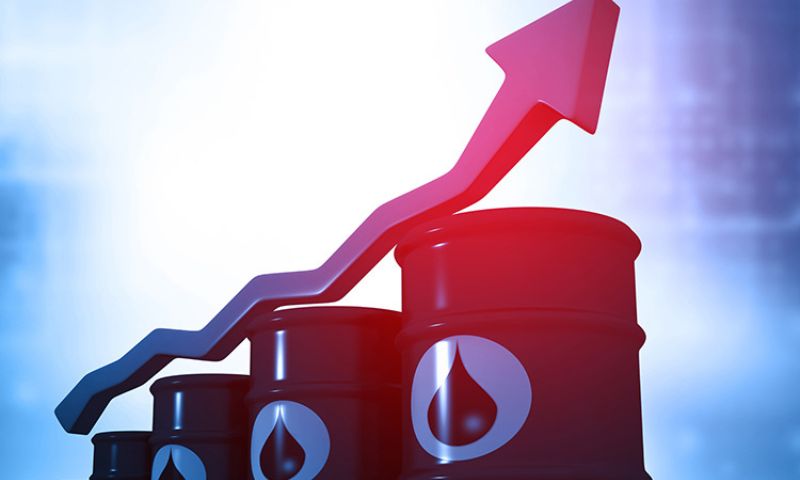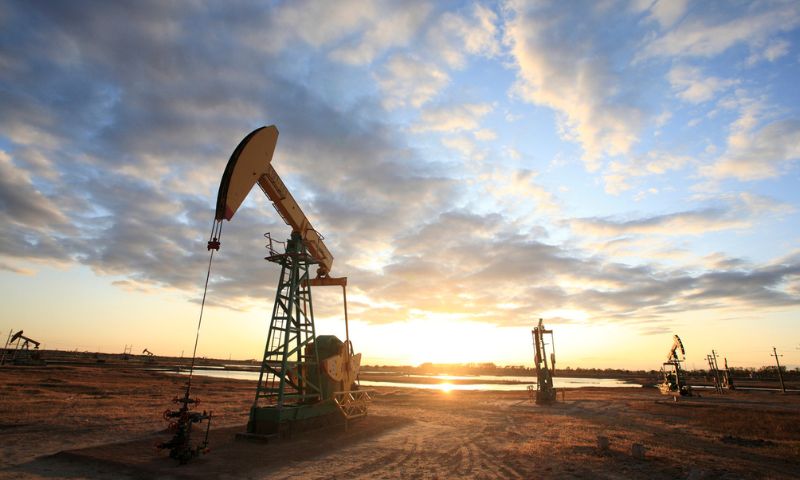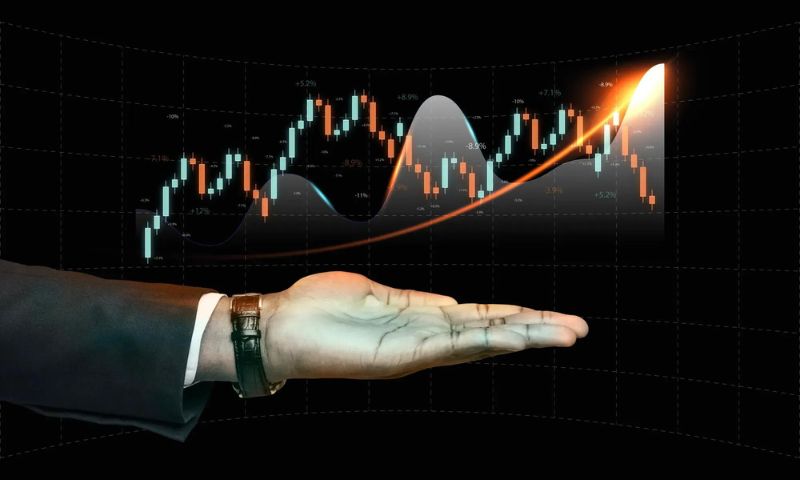Navigating the economic highs and lows, Geopolitics and Oil Price Fluctuations hold the cards. Think about it; a shift in power or peace talks in the Middle East can send oil prices soaring or plummeting. And with each OPEC meeting or new round of sanctions, traders brace for the market’s next wild ride. Yet, out of this chaos comes my story. I’ve watched these forces play tug-of-war with global markets. I’ve witnessed countries jockey for power, not with arms, but with barrels. In this sea of uncertainty, I sail with the compass of experience. This is not just an analysis; it’s a guide through the stormy waters of oil trading amid ever-changing political winds. Join me as we explore just how deep these ties go and how they can make or break both nations’ economies and your investment portfolio.
Understanding the Impact of Geopolitical Events on Oil Prices
Analyzing Middle East Conflicts and their Influence on Crude Oil Pricing
When trouble hits the Middle East, oil prices often jump. Why? The Middle East is like a big gas station. Many countries depend on it for oil. If there’s a conflict, people worry there might be less oil to go around. This fear can make oil prices go up, even if there’s enough oil. It’s because people trade oil based on what they think will happen in the future. If they believe conflicts might cut off the oil, they’re willing to pay more now to get it.
Let’s take Iraq for example. When conflict broke out there, oil prices shot up. This happened even though other countries promised to make up for any missing oil. What matters is not just the actual oil supply, but also what oil traders believe will happen to it.
Assessing the Role of OPEC Decisions and Sanctions on Oil Market Volatility
OPEC is a group of oil-producing countries. They decide how much oil they want to pump out. When OPEC countries change their minds about how much oil to produce, it shakes up the market. For instance, if OPEC cuts oil production, oil supply goes down. This can make oil prices rise if demand stays the same.
Then there are sanctions. These are like time-outs big countries give to others when they don’t play fair. Sanctions against a country like Iran can tighten the oil supply, since Iran has lots of oil. When countries can’t buy Iranian oil, they have to find it elsewhere. This can lead to more competition and higher prices.
Oil prices are like a see-saw. When supply goes down or demand goes up, oil prices can swing a lot. This can happen quickly based on news, rumors, or real events. That’s what we call oil price volatility. It’s important to keep an eye on these changes. They can affect everything from how much we pay for gas to the cost of making products that travel around the world.

Examining the Interplay Between Global Oil Demand and Geopolitical Tensions
The Effect of Political Instability and Warfare on Energy Security and Petroleum Production
When countries fight or have big problems, it can mess with how much oil they make. Think of a soda can; if you shake it and open it, it sprays. That’s like when a country with oil gets shaken by war. The oil doesn’t flow well. It can stop ships from moving oil too. Oil is also stored for emergencies. If people are scared there won’t be enough, prices go up. Countries might fight or not agree, which can change how much oil is made.
How Geopolitical Tensions Drive Oil Price Volatility and Impact Global Energy Markets
Big problems between countries can make oil prices jump around a lot. Oil prices go up and down, like a seesaw. Have you played on a seesaw? It’s fun but can be wild. Oil is a big deal for the world money stuff. It’s like when you trade a toy with a friend. If your friend is mad and won’t trade, finding another can be hard. The Middle East has lots of oil, and when it’s troubled, prices usually go up. That’s because people worry there won’t be enough oil. Things like rules about who can buy and sell oil also change prices. People who know about oil keep a close eye on these things. They look at how much oil comes in and goes out of countries. It’s a big puzzle, and they try to fit all the pieces together. They use what they know to guess what might happen to oil prices and make smart choices. These choices help them buy or sell oil at good times.
Have you ever saved up allowance money to buy something big? That’s what these oil experts do with oil; they save it and sell it when they can get the most for it. Big meetings happen where countries agree on how much oil to make. This can make prices change too. Sometimes, countries can’t sell their oil because of rules from other places. This makes less oil go around, and prices can go up. Oil prices going up and down can make life easy or hard for lots of people. It’s like when the ice cream truck comes but the price changes every day. It’s hard to know if you can afford your favorite treat. Games that adults play with oil prices affect us all. They can change how much we pay for a ride, how much stuff costs, and even what we can do each day. Keeping oil safe and getting it where it needs to go is really important. It’s not just about having gas for cars. It’s about keeping whole countries running.
Wars for oil and other energy things can happen. And when we talk about finding new ways to get power, like wind or sun, it can shake up oil prices too. So, if you hear news about people arguing far away, it might change how much your family pays for gas. Remember, oil is a big deal for everyone, everywhere. It makes our world go round, like the wheels on a bus. Now, isn’t it cool how everything fits together – even the stuff that seems far away?
Strategies and Consequences for Oil Trading in a Politically Charged Market
Integrating Oil Trading Strategies with an Understanding of Geopolitical Risks
When we trade oil, we must know the game’s rules. Global events can change these rules quick. Let’s talk about the ways leaders’ choices can alter oil prices. One thing is clear: oil prices go up and down, a lot. We call this “oil price volatility.” This is a big word for a simple idea. Oil prices change often and by a lot. Middle East conflicts can stop oil flow and send prices up. One bomb, one war can mean less oil.
Why is this so? The Middle East has a lot of oil. Wars there can make it hard or impossible to get this oil. This makes the oil we have more costly. Countries fight or argue, and we pay more at the pump. Knowing this, smart traders keep a close eye on the news. They look for signs of trouble that might bump up prices.
But it’s not just about wars. Leaders can place “sanctions.” These are rules that block trade. They say, “You were bad, so we won’t buy your oil.” When big oil countries face sanctions, less oil gets to the market. Less oil means higher prices. We saw this with Iran and Russia. Countries can also agree to change how much oil they pump. They do this to control prices. OPEC, a group of oil countries, does this often. When they cut supply, prices usually go up. When they pump more, prices can drop.
Evaluating Market Speculation Effects and Sanctions’ Impact on Energy Trade
Market players “speculate.” They guess where prices will go. They make bets. This can make prices swing a lot. It’s like a seesaw that moves with rumor and news. If traders think there will be less oil, they buy more now. This pushes the price up. But if peace talks start or sanctions lift, the price can fall.
Sanctions can make it hard for countries to sell their oil. This means less money for them. They can’t buy as much from others. The whole global economy feels this pinch. It changes what each of us pays for goods, for travel.
For traders, knowing political winds can mean big wins or losses. Guess right, and you can make a lot. Guess wrong, and you may lose just as much. This is why oil trading is not for the faint-hearted. It’s like a roller coaster. Highs and lows come fast and can be scary.
That’s why oil traders need to know more than just numbers. They need to understand the world. They must keep an eye on wars, talks, and leaders’ choices. They must read not just charts but also people and politics. It’s a tough job. But if they read the signs right, they can get ahead in this fast-changing market.

Navigating the Future of Oil in the Shadow of Geopolitical Shifts
The Influence of Renewable Energy Policies on Oil Industry and Fossil Fuel Reliance
Today’s world is rushing toward clean energy. This big push changes how we use oil. Leaders make laws to cut down on oil to help our planet. We use wind and sunlight to make power now. This new power costs less and gets better every day. Yet, people still need oil for cars and factories.
Countries like the US and China want more green power. They say, “Let’s use less oil.” This means oil may cost less since we want less of it. But oil nations feel this change. They plan ways to keep their power. Some countries don’t agree with the green power plan. They may fight to sell their oil.
Oil prices bounce around a lot. When prices drop, countries that sell oil get less money. They might not like clean energy rules because of this. These countries may talk and decide to make less oil. Making less can up the price. So, big oil places like OPEC are key. They say how much oil to pump so that prices stay right.
Anticipating Energy Market Trends in the Context of Energy Policy and Geopolitical Changes
Guessing the future of oil is tough. We have to look at what countries do and how they get along. Some nations might have beefs or put sanctions on others. This can make oil prices swing up or down. We also need to watch new oil sources and how much oil people want.
Traders think about all this when they buy or sell oil. They ask, “Will there be more fighting in the Middle East?” If yes, oil could get pricey because it’s risky to get oil there. They also check on rules that countries might set. These rules can make oil harder to get or move around.
Everything we do that needs oil affects its price. Like when we buy stuff that comes from far away. It has to come on big ships that use lots of oil. This ups the demand for oil. So, energy policies and world events can really shift oil prices.
Think about Venezuela, where trouble messed up their oil selling. Because they have problems, they can’t sell as much oil. This shakes up the whole oil market. Places that don’t work right or fight can change how much oil we all can buy.
Keeping our lights on and cars running ties up with world talk and deals. Oil and politics mix so much. We’ve got to stay sharp and plan well. Knowing all this helps us make smart choices, like where to put our money and how countries can stay friends.
We’re always watching and learning. Will we need less oil or more? What happens next with wind and solar power? The answers will shape how we live and how our world works. This way, we can ride this oil rollercoaster safe and sound.
In summary, oil prices feel the heavy impact of global events and politics. We’ve seen how Middle East conflicts and OPEC decisions shake the oil market. These factors can change oil flow and prices fast. Political unrest and wars also play a big role in energy supply and how much oil costs. These tensions can push prices up or down, affecting our whole planet.
We’ve looked at ways to trade oil that consider these tough conditions. Knowing the risks helps traders make better choices. Politics and sanctions can change the game, and we must adjust.
New energy policies and a move toward renewable energy will also guide oil’s future. We must watch and learn from these shifts. The oil world is complex, but armed with this knowledge, we’re better set to face the changes ahead. Stay sharp and informed, and you’ll navigate these waters like a pro.
Q&A :
How do geopolitics affect oil price fluctuations?
The intricate relationship between geopolitics and oil prices is a crucial factor in global economic stability. Political events like conflicts, trade agreements, or sanctions can alter the balance of supply and demand in the oil markets, leading to significant price volatility. Nations holding substantial oil reserves can use them as economic weapons, and geopolitical uncertainty often results in speculative trading that can further exacerbate oil price fluctuations.
What geopolitical events have historically caused major shifts in oil prices?
Historically, major geopolitical events such as wars, territorial disputes, and regime changes in oil-producing countries have had profound impacts on oil prices. Instances like the 1973 Oil Embargo, the Iranian Revolution in 1979, the Gulf War in the early 1990s, and more recently, the Arab Spring, all triggered shocks in the oil market, leading to price spikes due to fears of supply disruptions.
Can the stabilization of geopolitics lead to lower oil prices?
Stable geopolitics can potentially lead to lower oil prices by ensuring steady oil supply routes, predictable trade relations, and consistent production volumes. When political climates in key oil-producing regions are stable, disruptions in oil supply are minimized, reducing the risk premium often built into oil prices. However, other factors such as global demand, technological advancements, and alternative energy sources also play significant roles in determining oil prices.
How do oil price fluctuations impact global economies?
Oil price fluctuations have a broad impact on global economies, influencing everything from inflation rates to trade balances, and even monetary policy. Countries that are net importers of oil can suffer economically when prices are high, as it increases the cost of goods and can lead to inflation. Conversely, for oil-exporting countries, higher prices can bolster economic growth. However, extreme volatility in oil prices can lead to economic uncertainty and hinder long-term planning for both businesses and governments.
What role does OPEC play in the relationship between geopolitics and oil prices?
The Organization of Petroleum Exporting Countries (OPEC) plays a significant role in the interplay between geopolitics and oil prices. As a coalition of some of the world’s largest oil producers, OPEC can influence oil prices through collective decisions on production quotas and supply adjustments. Geopolitical tensions within or between member states can impact these decisions, while OPEC’s actions can, conversely, have geopolitical ramifications, affecting both member and non-member countries.




